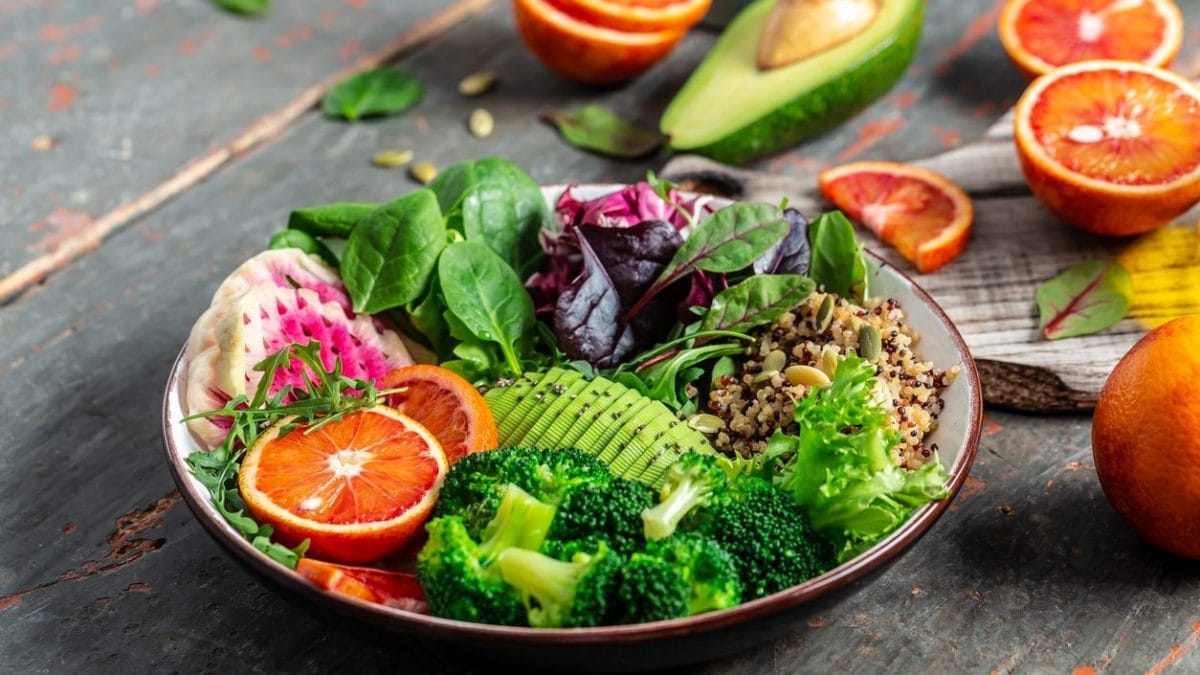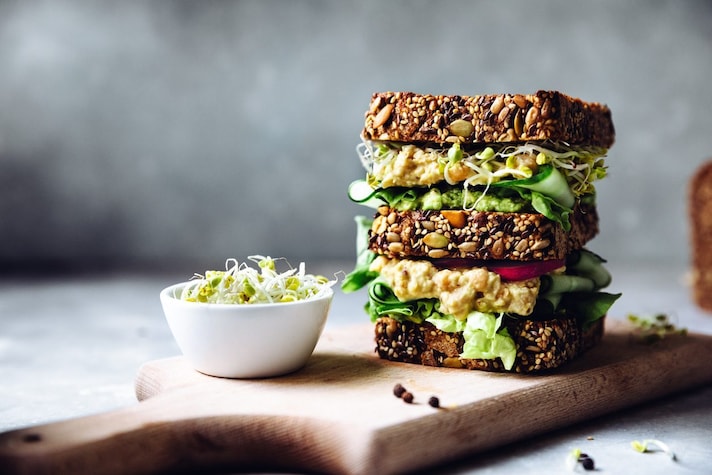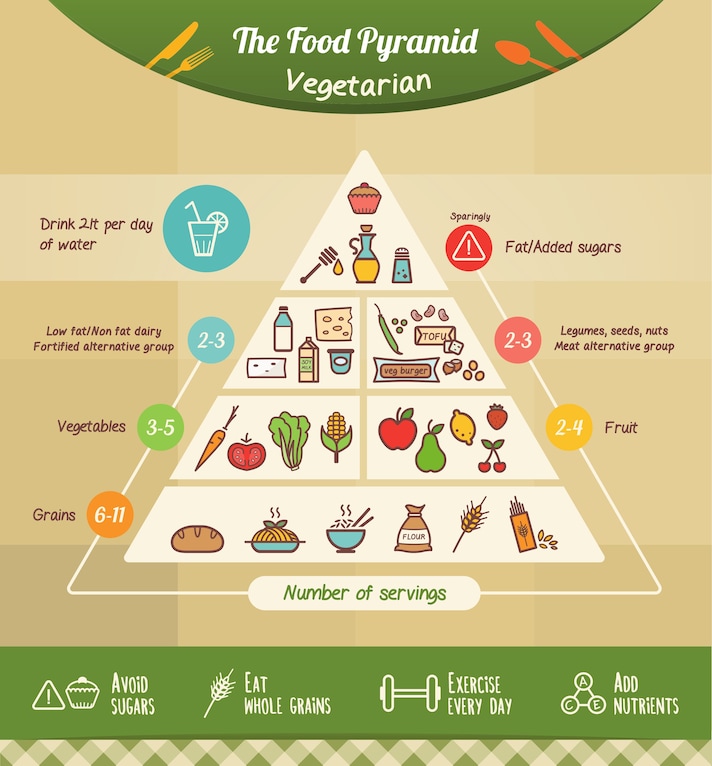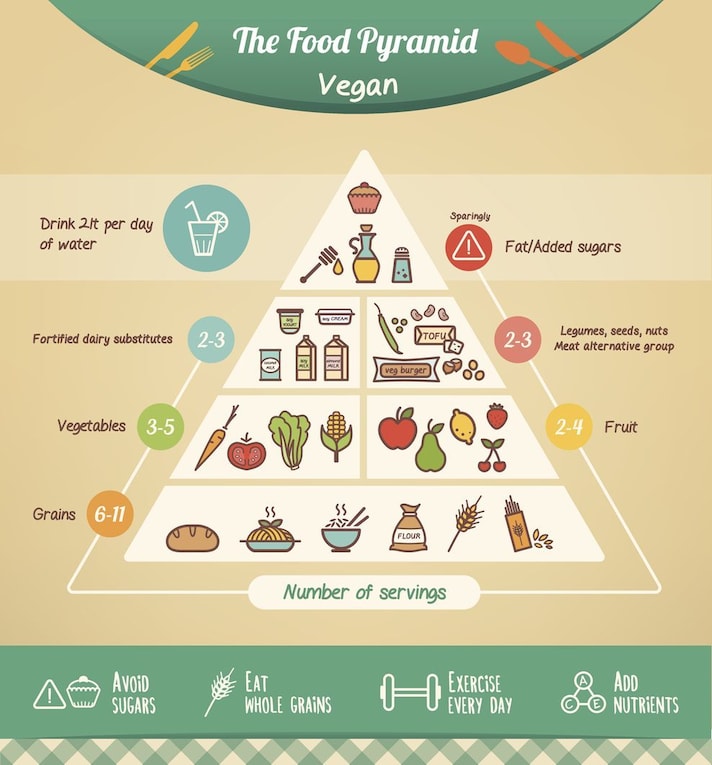
Many people think that diets like vegetarian and vegan were "invented" recently, but in reality, alternative eating styles are well over a century old. From the mid-19th century to the early 20th century, animal products were at the center of a debate involving nutritional and ethical issues. But do you know the differences between plant-based, vegetarian, and vegan diets? Today, we'll tell you about the philosophies underlying these alternative eating styles and the various nuances that have arisen.
What is Plant-Based Nutrition?
A plant-based diet is based on the consumption of plant-based foods, often whole and minimally processed. The reasons may be health-related, but also ethical, such as environmental protection or animal welfare. A plant-based diet primarily includes plant-based foods such as fruits, vegetables, whole grains, legumes, nuts, and seeds. In some cases, it may also include small amounts of meat, fish, dairy, and eggs, occasionally. If carefully planned, a plant-based diet can be considered complete, as long as it includes protein, including plant-based proteins, minerals such as calcium, zinc, and iron, and vitamins such as B12.
A specific school of thought within the plant-based world is Whole Food Plant-Based (WFPB), which focuses on the consumption of whole, unprocessed plant-based foods, while severely limiting the use of white flours, added sugars, and refined oils.
Differences Between a Plant-Based and Vegetarian Diet
A plant-based diet is often confused with a vegetarian diet: although the two philosophies are similar, they don't entirely match. The differences lie primarily in the approach to plant-based diets: the "plant only" concept defines an exclusively plant-based diet, while the "plant-based" concept is based on a predominantly plant-based diet. Furthermore, a vegetarian diet, as we'll see shortly, includes animal-derived foods such as honey, milk, and eggs, while a plant-based diet also allows small amounts of select meats (organic and sustainable).

What is a Vegetarian Diet?
A vegetarian diet excludes, but not entirely, animal products. Calling it a "diet" would be incorrect, as within the vegetarian movement there are diverse positions, perspectives, and nuances of thought. To summarize, we could divide this large group into:
- Lacto-ovo vegetarianism, which we've already discussed in the comparison with the plant-based diet. This type of diet excludes foods derived from the direct killing of both land and marine animals, but allows indirect animal products, such as eggs (except those of fish, which are extracted after the animal has been killed), milk, dairy products, honey, and all other beehive products such as royal jelly, propolis, and pollen, as well as fungi (including yeasts) and bacteria (such as lactic acid bacteria). Since it is the most widespread model, especially in the West, it is often compared to a vegetarian diet without any specific requirements.
- Lacto-vegetarian diet: in this case, dairy products are permitted, but eggs are not. This philosophy, especially widespread in the Indian subcontinent, is divided into a series of religiously-linked currents, all sharing the principle of non-violence towards living beings. For example, the Vishnu diet also prohibits the consumption of mushrooms, garlic, onions, and truffles. These particular nuances, however, are linked to spiritual precepts, as well as ethical positions.
- Ovo-vegetarian diet: in this case eggs (unfertilized eggs) are included but not milk and its derivatives; this lifestyle is also linked to the religions of the Indian subcontinent, in particular Hinduism, which considers cows sacred and applies a ban on the consumption of beef and its derivatives.

What is a Vegan Diet?
Veganism, as a movement did not emerge a few years ago, as many believe: its official birth dates back to 1847 in Ramsgate, Kent, England, where the Vegetarian Society, the oldest existing vegetarian organization in the world, was founded. At the time, however, the distinction between vegetarianism and veganism was not as clear-cut as it is today: it was in the 1920s that two groups emerged, divided precisely on the issue of dairy consumption. From this debate, what was considered an offshoot, the Vegan Society, was born, but over the years has become an autonomous and well-defined movement.
A vegan diet is a regimen that excludes all animal products for ethical reasons. Animal welfare, however, isn't the ultimate goal, but rather a consequence of embracing a cruelty-free lifestyle, which encompasses aspects beyond food and nutrition. Naturally, this is often linked to issues such as pollution, land exploitation, and the reduction of biodiversity, which contribute to supporting the vegan perspective.
Even in this case, the "mother" philosophy has given rise to currents of thought that have diversified vegan diets:
- "Classic" vegan, which is based on the consumption of exclusively plant-based foods, excluding all products of animal origin including eggs, honey, milk and cheese;
- Raw veganism, which involves the consumption of raw or cooked foods but at temperatures below 104°F/40°C;
- Fruitarianism or vegan fruitarianism, which is based on the consumption of fruit and vegetables, also excluding seeds, legumes and cereals.
The latter two philosophies are decidedly more restrictive than vegan diets, which are already restrictive in themselves: we advise anyone wishing to undertake any of these approaches to do so under strict medical supervision, so as to avoid nutritional deficiencies.

;Resize,width=767;)
